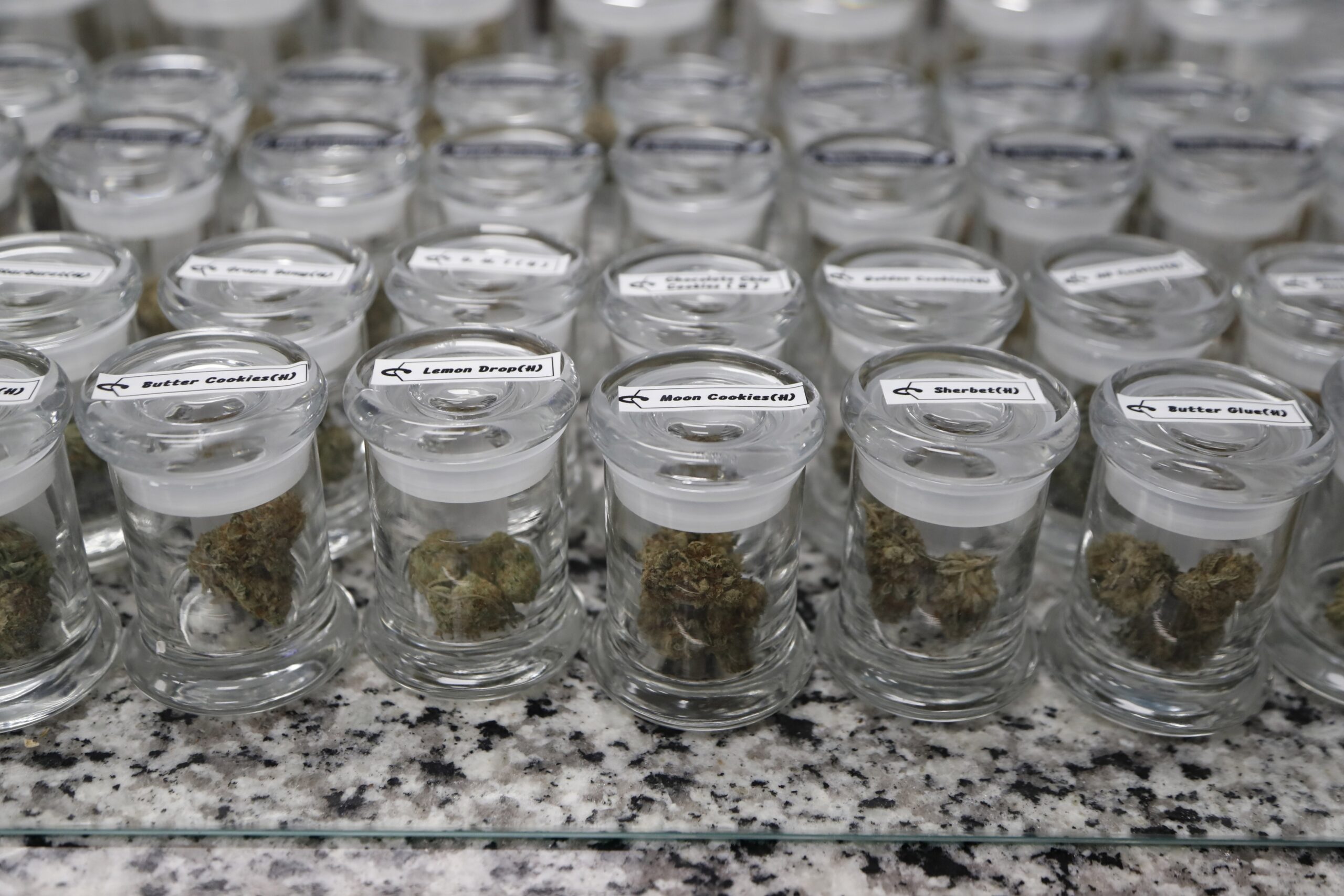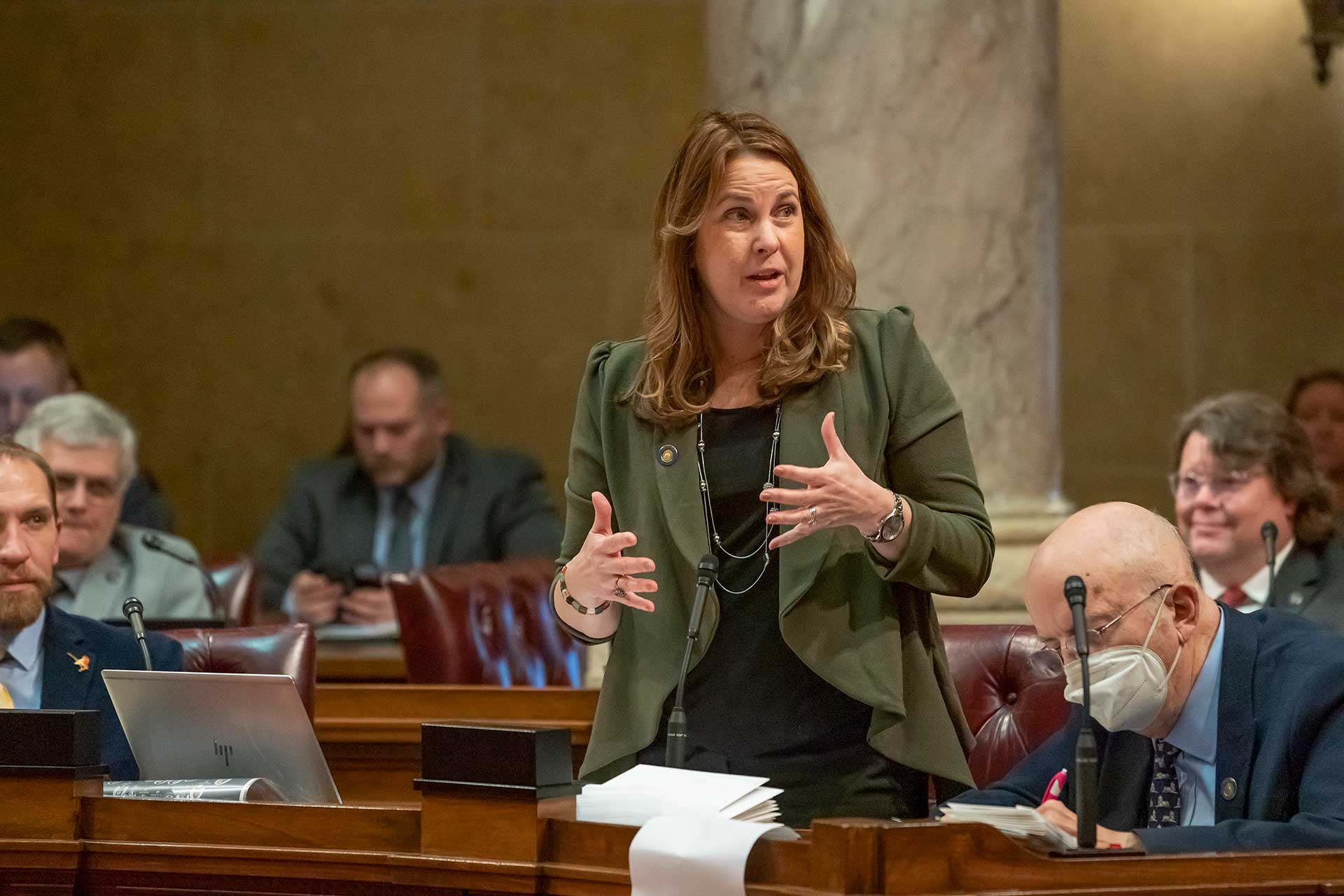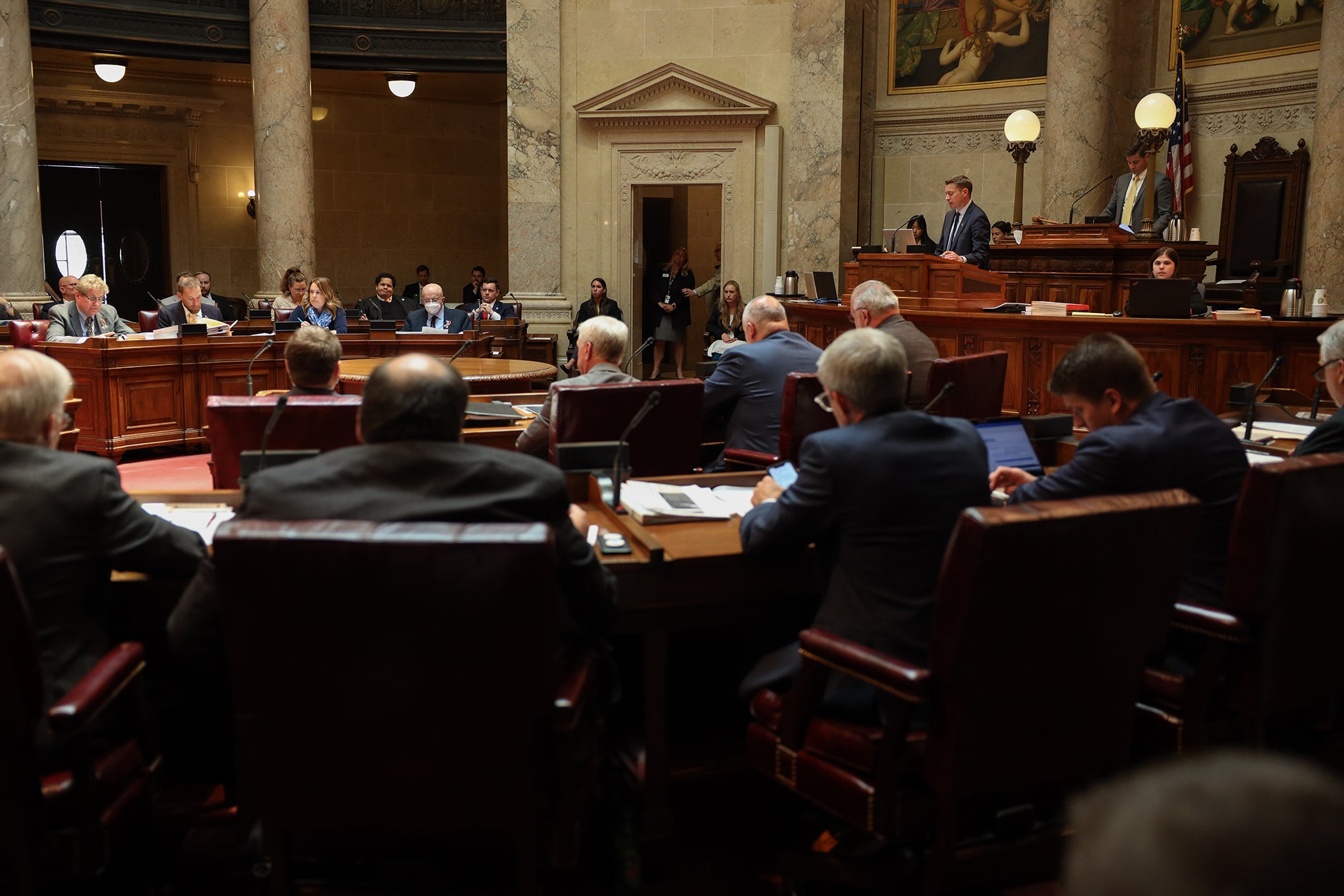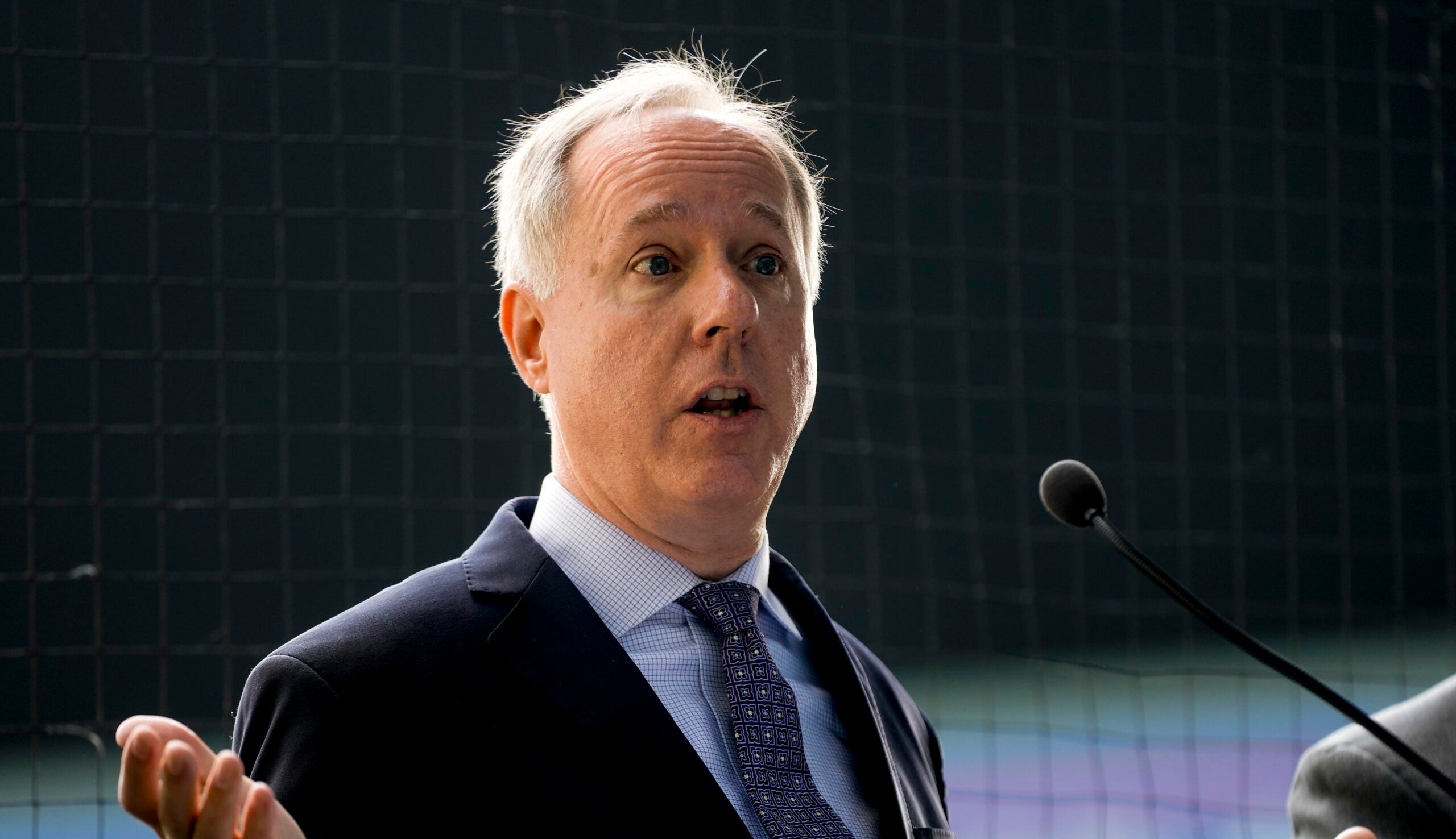Senate Democratic Minority Leader Dianne Hesselbein says she’ll introduce a bill to legalize medical marijuana next legislative session and thinks it could stand a chance after Democrats picked up four seats in the chamber and ended a Republican supermajority.
“With 18 Republicans and 15 Democrats, I think they’re going to need our votes to get anything done in the state Senate,” Hesselbein told WPR.
Hesselbein, a Democrat from Middleton, said she’s already had conversations with Republican leaders, including Senate Majority Leader Devin LeMahieu, R-Oostburg, and Senate President Mary Felzkowski, R-Tomahawk.
Stay informed on the latest news
Sign up for WPR’s email newsletter.
The most recent Democratic-authored marijuana legalization bill called for full recreational and medicinal usage in the state. No Republicans signed onto that bill, and Hesselbein said she thinks recreational legalization is a nonstarter.
“But let’s get medicinal out there, because there are a lot of people that could benefit from that,” she said. “I think we’ve got to get the conversation started once again.”
She said she plans to re-introduce a bill from 2022 that would allow people to get medical use licenses through the state Department of Health Services for treating certain conditions. That bill received only Democratic sign-on and died in committee.
“I’ll put it out there, but I’m open to amendments. I’m open to changes. But I think we’ve got to get the conversation started once again,” Hesselbein said.
Wisconsin has become something of an island in recent years as neighboring Midwestern states have largely legalized medical marijuana, and many offer access to recreational marijuana as well. Assembly Speaker Robin Vos, R-Rochester, who controls which bills come to the Assembly floor for a vote, has said he will never support legalizing recreational marijuana in the state.
And while Wisconsin Democrats are fairly unified in supporting full marijuana legalization, with Gov. Tony Evers repeatedly proposing it in his state budget, there is some support for medical marijuana among Republicans, too.
That includes from Felzkowski, a cancer survivor who has been an outspoken supporter of limited medical marijuana.
But an Assembly proposal to launch a small state-run dispensary system was a non-starter for Senate Republicans. Hesselbein said it threw a wrench in her own plans to push for something in the Senate. With a larger Democratic share in the chamber, she argued, this session could present an opportunity for the issue to move forward.
“Maybe if I put something out there, (Republicans will) look at that, and they can take pieces of that and then maybe do their own legislation,” she said. “We’ll see if we cannot somehow get to yes.”

Other priorities include ‘right of first refusal’ bill on transmission lines
Hesselbein was first elected to serve as the Senate Minority leader in December 2023, and reelected by her party last month. She said she’d also re-introduce a bill to offer “right of first refusal” to transmission lines to build new lines connecting existing infrastructure. That GOP-authored proposal passed the state Assembly in February, but stalled in the Senate.
And it had bipartisan support — and diverse critics. Supporters argued it would allow Wisconsin’s utilities to be more locally regulated. Opponents included environmental groups, pro-business conservative lobbies, and pro-consumer advocates like AARP. They argued the bill drives out competition and drives up consumer prices.
Hesselbein argued the bill is a “win-win” for consumers and workers.
“I couldn’t believe we couldn’t get it done,” she said.
Hesselbein said Democrats are also waiting to see how the promises from President-elect Donald Trump to deport millions of immigrants play out. She said she’s particularly concerned about how that might affect Wisconsin’s agricultural industry.
“Wisconsin has dairy farms. They are run by immigrant workers. So what is (mass deportation) going to do?” she said. “Will we be the dairy state anymore?”
Like her counterpart in the Assembly, Minority Leader Greta Neubauer of Racine, Hesselbein said she’s not yet sure what legislative options are available to the minority party on this issue. But she said she thought this was one area where lawmakers might work on bipartisan responses.
“I think talking to my Republican colleagues, they also have a lot of farmers in their districts too that are going to face the same problem,” she said.
Wisconsin Public Radio, © Copyright 2025, Board of Regents of the University of Wisconsin System and Wisconsin Educational Communications Board.







